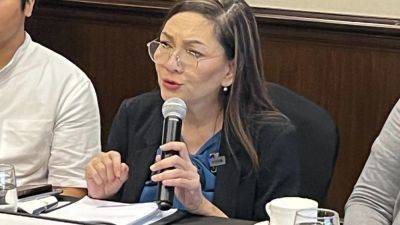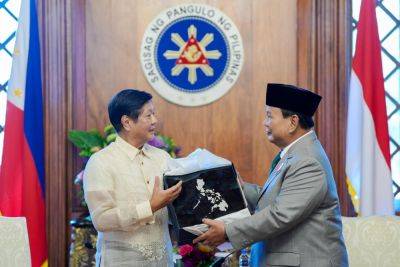From Exile to Ambassador: How Philippines' Jaime Florcruz sees China's future
MANILA, Philippines — He fought the Marcos dictatorship in his youth and spent years exiled in China.
Today, the Philippine envoy to Beijing, who President Ferdinand Marcos Jr. appointed in 2022, is perhaps one of the only few China watchers in the region who sees the potential for a "benign and open" Beijing to emerge in the future.
Jaime FlorCruz has spent five decades in China after arriving there as a student in 1971. In his September 17 interview with The Economist, the veteran China observer charted the country's history, examined the complicated legacy of its one-party rule, and expressed hope that Beijing will not strong-arm neighbors into its influence as it gains power.
"I don’t know what a strong China will actually be like in the next few years. What I know is that a weak China, as I saw 50 years ago, was bad for its neighbors," he said.
"That’s the worst of the options that I can think of."
FlorCruz' beliefs about the future of China are grounded in his long stay in the country — a story that started with being threatened with arrest by the government of the current president's father.
His open-ended political exile started after being blacklisted by the Marcos Sr. administration while he was on a study tour in China, which kept him from returning to the Philippines for a decade. FlorCruz found himself in the middle of Mao Zedong's Cultural Revolution and spent years on physical labor on a farm and on a ship before getting to study history in one of the country's top schools.
It was in university that FlorCruz said he learned that his classmates — some of whom went to assume top posts in the Chinese Communist Party — had mixed views on the political and social upheaval launched by Mao in his last decade in power.
"The official view was that Mao was 70% correct and 30% wrong. I think most of my Chinese classmates privately would have said 50/50 at most. They do give him credit for... uniting China. Because to them, China went through a very difficult time when it was fractured," he told The Economist.
But for FlorCruz, Mao's cultural revolution, which historians estimate left around 500,000 to two million people dead, was a "huge mistake."
"The







